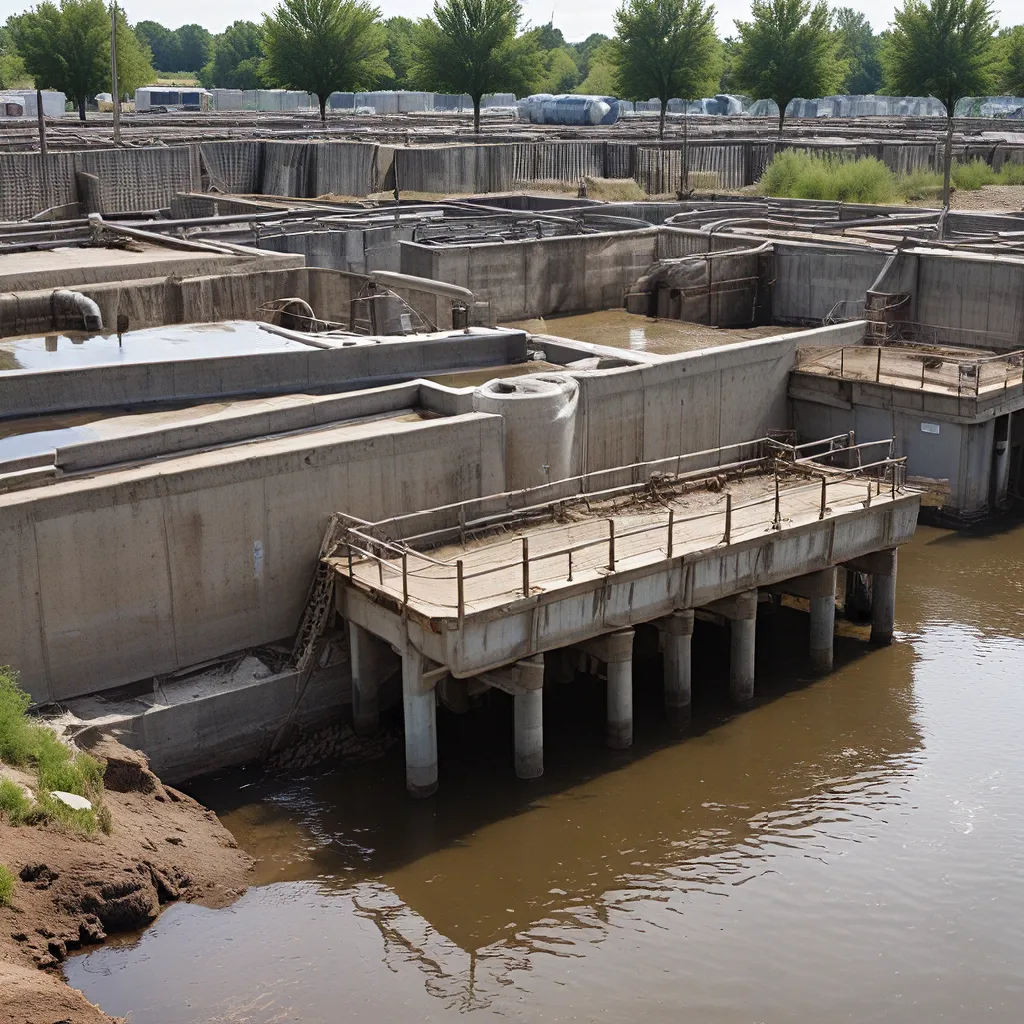
As an environmental enthusiast, I’ve always been fascinated by the intersection of wastewater treatment and social impact investing. It’s a dynamic space where cutting-edge technology, sustainable business models, and a relentless drive to make the world a better place all come together. And let me tell you, the future of this field is nothing short of electrifying.
Tackling the Global Water Crisis through Innovative Financing
The stats on the global water crisis are sobering. According to the United Nations, by 2025, half of the world’s population will be living in water-stressed areas. That’s a staggering number, and it highlights the urgent need for comprehensive solutions. This is where impact investing comes into play, and boy, have we seen some game-changing developments in this space.
One of the most exciting trends is the rise of impact-linked bonds and other innovative financial instruments. These are essentially investment vehicles that tie financial returns directly to tangible social or environmental outcomes. Imagine a bond where the interest rate fluctuates based on the company’s progress in reducing water pollution or improving access to clean water in underserved communities. It’s a win-win for investors and communities alike.
But it’s not just about the money – it’s about the mindset shift. Impact investors are increasingly recognizing the vast potential of wastewater treatment to drive systemic change. They’re not just looking for a quick return; they’re in it for the long haul, committed to building a more sustainable and equitable future.
Empowering Local Communities through Inclusive Financing
One of the most inspiring aspects of this space is the way impact investors are working to empower local communities and underserved populations. For too long, access to affordable, high-quality water and sanitation services has been the privilege of the few, leaving countless individuals and families in the lurch.
But that’s starting to change, thanks to the efforts of impact-driven organizations like Roserve in India and Komaza in Kenya. These companies are using innovative financing models to bring wastewater treatment and sustainable water solutions to the people who need them most. It’s not just about building infrastructure; it’s about creating jobs, boosting local economies, and giving people a fighting chance at a better life.
And the beauty of it is, these initiatives aren’t just good for the communities they serve; they’re also good business. Studies have shown that companies with strong diversity, equity, and inclusion practices tend to outperform their peers. Impact investing is proving that doing good and doing well can go hand in hand.
Scaling Sustainable Solutions through Collaboration and Technology
Of course, tackling a challenge as vast as the global water crisis requires more than just innovative financing. It also requires collaboration, technological advancements, and a relentless commitment to scaling sustainable solutions.
That’s why I’m so excited about the way impact investors are teaming up with the public sector, NGOs, and tech innovators to drive real change. Take the Africa Medical Supplies Platform, for example – a UNICEF-backed initiative that used innovative demand aggregation to help African nations access critical medical supplies during the COVID-19 pandemic. This model could be applied to the water sector, helping smaller communities pool their resources and gain access to cutting-edge wastewater treatment technology.
And speaking of technology, the advancements we’re seeing in this space are truly mind-boggling. From smart city solutions that optimize water usage to micro-forestry projects that capture carbon while generating income for local farmers, the possibilities are endless. Impact investors are pouring money into these innovative approaches, knowing that they have the potential to transform communities and change the world.
Navigating the Challenges and Building a Sustainable Future
Of course, it’s not all smooth sailing. As with any rapidly evolving field, the world of impact investing in wastewater treatment is facing its fair share of challenges. Issues around transparency, accountability, and impact measurement continue to be a source of debate and discussion.
But I’m confident that we’re moving in the right direction. With the increasing adoption of frameworks like the Impact Management Project and the growing demand for third-party impact verification, the field is becoming more rigorous and reliable. And as more institutional investors jump on the impact investing bandwagon, the flow of capital into this space is only going to increase.
At the end of the day, I believe that the potential of impact investing in wastewater treatment far outweighs the challenges. By harnessing the power of sustainable financing, cutting-edge technology, and a relentless commitment to social and environmental justice, we can build a future where clean water is a fundamental human right, not a luxury. And as an environmental enthusiast, I can’t wait to see what the next decade has in store.
So, if you’re looking to make a real difference in the world, I’d encourage you to explore the incredible opportunities in this space. Whether you’re an investor, an entrepreneur, or just someone who cares about the planet, there’s a place for you in this revolution. Let’s roll up our sleeves, dive in, and create a future that’s not just cleaner, but more equitable and inclusive as well.
Alpha Wastewater is leading the charge in sustainable wastewater treatment solutions. Check out their website to learn more about how they’re driving positive social and environmental change through innovative technologies and financing models.